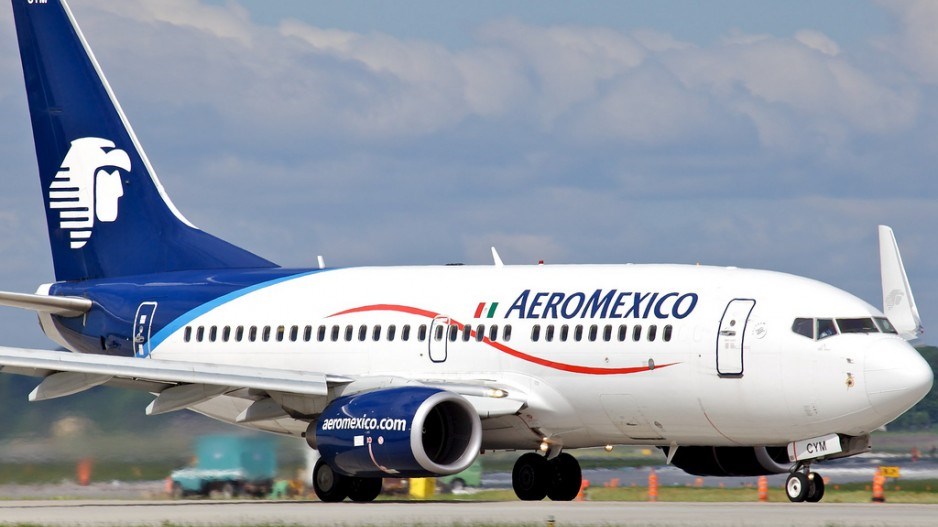Canada's decision to require Mexican citizens to have visas in order to enter Canada starting this past Feb. 29 has prompted many Mexicans to stay home, or travel elsewhere, according to new visitor data.
Immigration Refugees and Citizenship Minister Marc Miller made the surprising sudden announcement on Feb. 28, throwing a wrench into the works of many Mexicans who had already booked trips to come to Canada. His rationale was that it was a way to curb the number of asylum claims in Canada.
Before Miller's one-day notice of the change, Mexicans had only been required to have electronic travel authorizations in order to visit Canada. Miller's announcement came with a ministry statement that "most existing electronic travel authorizations for Mexican passport holders are being cancelled."
The only exemptions that allow Mexicans to come to Canada without a visa are those who held a Canadian visitor visa in the last 10 years, or who currently hold a valid U.S. non-immigrant visa.
Perhaps because so many Mexicans had already booked flights for March, that month's number of Mexicans coming to Canada via B.C. ports of entry was still up year-over-year, by 6.3 per cent, to 16,458, according to Destination British Columbia's breakdown of Statistics Canada data. That increase, however, was far below the 14.4-per-cent year-over-year increase, to 336,748, for overnight visits by residents of all nations to Canada via B.C. entry points in March.
The drop in visits to Canada by Mexicans through B.C. started in earnest in April.
Year-over-year overnight visits to Canada through B.C. by residents of all nations in April was up 4.6 per cent, to 338,805. The number of Mexicans in that tally, however, was down 42.2 per cent year-over-year to 10,526. That was the largest percentage drop among nationals of all countries.
May data shows that the trend is continuing.
B.C. tourism operators were having field days all month in May, as the number of overall overnight foreign visitors to Canada through B.C. entry points soared 17.1 per cent, to 515,073, compared with the same month in 2023. The number of Mexican visitors to Canada through B.C. in May, however, fell by 27 per cent, to 12,624. Once again, that was the largest percentage drop among nationals of all countries.
The change to require Mexicans to have visas to enter Canada reverts to what was the case nearly eight years ago
Prime Minister Justin Trudeau had made good on his long-term pledge to allow Mexicans to enter Canada without needing visas starting Dec. 1, 2016. He made the announcement in June of that year, during Mexico's then-president Enrique Peña Nieto’s two-day state visit to Canada, which also saw Mexico agree to lift restrictions on Canadian beef.
Airlines loved the news.
Aeromexico upped its weekly flight frequencies to Mexico City out of Vancouver International Airport (YVR) to 10 from seven, and started using bigger planes starting as soon as the visa restrictions were dropped.
Within a year, Interjet became the seventh airline to fly non-stop flights between YVR and Mexican destinations.
Mexican visits to Canada through B.C. entry points soared in 2017.
Abbotsford International Airport general manager Parm Sidhu told BIV in late 2017 that his airport was seeing a spike in travel to Mexico. His airport expected three non-stop flights per week to Mexico in the 2017-18 fall and winter versus only one weekly non-stop flight to Mexico the previous year.
It has no such flights right now.
Former U.S. president Donald Trump's January 2017 inauguration as president came a little more than a month after Canada lifted its visa requirements on Mexicans. Some speculated that Mexicans were coming to Canada and had soured on visiting the U.S. because of Trump's anti-immigration policies and disparaging language about Mexicans, but the reason was more likely related to the ease in which they could newly come to Canada.
The number of Mexican travellers to Canada through B.C. jumped 53.6 per cent to 13,573 in December 2016, compared with December 2015, according to Destination British Columbia. Canada-wide, visits from Mexicans in December 2016 were up 69.1 per cent compared with the same month in 2015.
The number of visits obviously tanked during the COVID-19 pandemic, but Mexicans were quick to return to visiting Canada after pandemic restrictions eased..
The take-away lesson from the surge and decline in Mexican visits to Canada through B.C. is that requiring travellers to get visas in order to visit a country is a good way to deter visits.
Fortunately for Canadians, the country's passport is the strongest one in the Americas, with access to 187 of 227 countries, according to passport analytics firm Henley & Partners. Canada ranks below 23 nations for the number of countries where nationals can visit visa-free, and is tied with Czechia, Hungary and Malta. Countries with visa-on-arrival requirements count as visa-free in Henley & Partners' research.
U.S. passport holders can only access 186 of those nations visa-free.
The differences between Canada and the U.S. on visa-free access include that Canadians can enter Uzbekistan and Belarus without visas, whereas Americans need visas for those countries. Americans, however, can enter Egypt without a visa, whereas one is required of Canadians, according to Henley & Partners.




